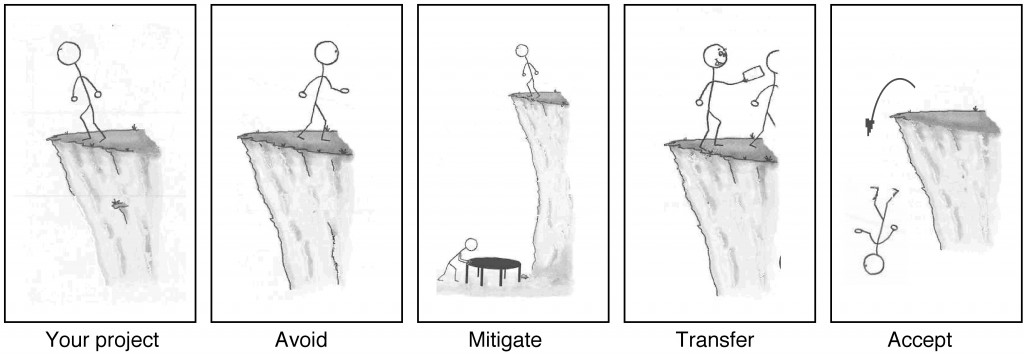Control and Monitoring
18 Risk
Amanda McEachern Gaudet and Mackenzie Collins
What is Risk?
“A risk is any uncertain event or condition that might affect your project. Not all risks are negative. Some events (like finding an easier way to do an activity) or conditions (like lower prices for certain materials) can help your project. When this happens, we call it an opportunity; but it’s still handled just like a risk.” (Watts, 2014)
We identify risks so that we can plan for the potential impacts if they happen and decide in advance the type of action we would take if they come to fruition.
Figure 16.1 Risk Management Options (Watts, 2014)
With your Capstone, there are many different risks, both at a micro and macro level to the project. Identifying this upfront will help to increase the likelihood of success in your project.
Challenge your team to the exercise at the end of the video. Identify 5 potential risks you see as potentially impacting your project and how you would address them.
A common risk often relates to research, notable “primary” research. Many teams will attempt primary research and find they are not able to effectively collect enough data in the short period of time allotted, or collect the ‘right’ data to gain intended insights. One approach to mitigate or overcome this potential issue might be to change the primary research questions into secondary research. Find academic journals in the industry or field of your project and search out what results or information already exists. If you are uncertain about how to change these questions into searchable terms you can always seek out the guidance of your mentor, or library team.


